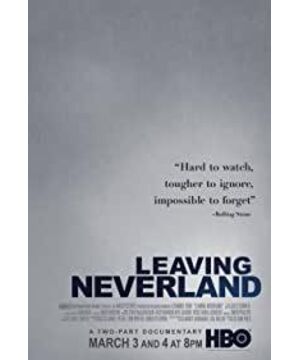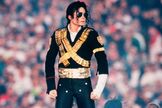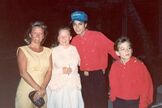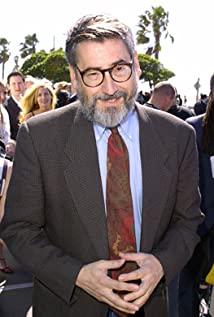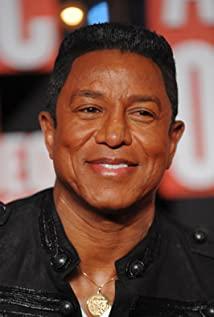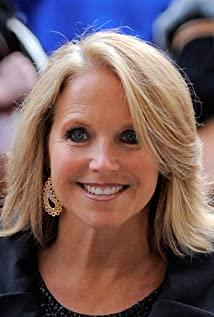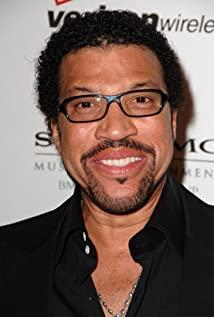This article is mostly some fragmentary personal feelings, and there is nothing new, just unpleasant.
Interests: I liked MJ for about five years, and I liked it very much for a while. Later, I lost my fans for many years due to personal changes in music and other aspects. I recently returned to the pit, not a particularly senior fan.
I have also come into contact with some materials before removing the fan - such as MJ's own interviews, various private video recordings, the memories of people around MJ, a summary of the testimony of witnesses in the 05 case, and some documents officially released by the Santa Barbara court. Wait. As an ordinary fan far across the ocean, although it is impossible for me to grasp all the information, what I can grasp is actually enough for me to rationally judge that MJ is innocent, whether it is the entanglement of some small problems (such as the boy's description of MJ's private parts in 1993) or from a relatively overall perspective (MJ's own behavior pattern, the remarks of those around him who support his innocence can be corroborated with evidence, the credit problems of several accusers, etc.) . However, this time, "Escape from Neverland" is obviously bigger than the waves caused by various intermittent "black materials" in the media after MJ's death. In addition, I have also seen some shocking comments similar to this film, so in the spirit of "without investigation, Having no say" I decided to watch the film for myself.
The title of the article comes from a comment in a video of a fan-made counterattack on YouTube, and it is also my first intuitive feeling when watching this film-aside from the facts, this film is really good by the standards of a documentary. very bad. And focusing on the accusers' accounts, their description of the sexual assault part is also difficult to convince me.
Let's talk about how bad it is by the standards of documentaries. In fact, many comments have been written on this point before. For a full four hours, the director only interviewed two accusers and their two or three family members. Basically, the documentary presented only one side of the accusers, and lacked credibility. There are no physical or third-party witnesses to corroborate: there are no interviews with other people who had contact with MJ or the two boys at the time, and no attempts were made to consult police or community workers who had handled two child molestation cases. Even if you can't get in touch, if you mark something in the video "the other party can't be contacted/refused to interview", it will be considered that you have worked hard.
As for the views of MJ's side or a third party, my impression is that there are only some excerpts from news reports after the case broke out, video clips from MJ's side declaring MJ's innocence, and some videos of fans expressing hatred, maybe about ten minutes in total? And these videos don't have much narration of the incident itself, except for the short TV interview of defense lawyer Massero, which can only be said to be used to create "MJ officials and fans blindly deny the accusation and even suppress the victim. , the situation of the victims is very difficult”, and how to say this form of expression gives me a strong sense of deliberateness, and the intention is so obvious that it can’t be more obvious. In addition, the director's practice may infect passersby who are not familiar with the situation. Unfortunately, for viewers who have done some research and have seen the complete video material, the director's cutting and reconnection of certain video materials can be almost immediately recognized. Perceived and very eye-catching: The first time I watched the film, I found that in the 1993 video clip of the statement released by MJ after his nudity examination, the director was very rude to the middle MJ saying "If this proves my innocence. ——My complete innocence, then it’s worth it” was cut out; the director put two lines about the presumption of innocence from MJ’s 1994 NAACP address, but there’s another line after MJ "Because I should not only be presumed innocent. I am innocent." The director somehow ignored it. After watching the film, I went to search for the information myself, and found that there was something even more extreme: the film talked about the second child molestation case in 2003-05, and the director targeted lawyer MJ Fang for a child molestation case that had nothing to do with it. The video of the speech in the wiretapping case cut off some corners and put it in, giving the audience the impression that the lawyer was threatening the accusers of the child molestation case; defense lawyer Massero not only talked about Wade Robson's testimony in court in a TV interview , and also mentioned the fact that Safechuck signed a separate court statement that year, which is inconsistent with Safechuck's own statement in the film, and the director chose to completely omit the content of the defense lawyer talking about Safechuck.
In addition to the obvious cutting and cutting of the inductive video material, this film basically only has the memories of the accuser and the accuser's family, plus some sensational tactics - I am more impressed that in the gaps between the narrations, the director will Insert some aerial shots overlooking the city with a nice symphony/piano piece, without any narration or narration, and in this film, there are so many aerial shots that are filled in that it feels deliberate.
In my opinion, since this is a documentary claiming to help victims of sexual assault, why not try to restore the truth as much as possible through investigation, so as to provide stronger support and evidence for the victim's allegations? I understand that child sexual abuse cases have their particularities. There are problems such as difficulty in producing evidence, children’s weak discrimination and cognitive ability, and it is difficult to accurately understand sexual abuse behavior. However, the problem of this "documentary" is not the difficulty of producing evidence at all. Instead, there was no attempt to investigate, and an attempt was made to convict a defendant who had no chance to speak out just by referring to the plaintiff.
After comparing it with some other documentaries of similar subject matter, I feel worse about this film. For example, I watched a documentary Jeffrey Epstein: Filthy Rich, which also focused on celebrity sexual assault allegations. Here, we also put aside the facts outside the documentary, and just look at the efforts made by the documentary itself to restore the facts: in almost the same four hours, Filthy Rich interviewed the victims who accused Epstein, the victims of the victims. Lawyers, newspaper reporters who tried to report on Epstein's sexual assault, employees who worked for Epstein, police officers and FBI investigators who handled the case, colleagues who worked with Epstein, and Epstein's defense attorney In person; some people who received interview requests refused to speak, and the documentary was also subtitled. In addition to witnesses, Filthy Rich also showed a large number of physical evidence such as police interrogation videos, trying to provide support and evidence for the victim's statement from multiple aspects, all of which are completely missing from "Escape from Neverland".
Well, some people may say that the director is just trying to give the accusers a channel to speak out, and just wants to do a Robson and Safechuck family story sharing session. Compared with other documentaries of similar themes, the concept is different. Then look at the accuser's own account in "Escape from Neverland". Regardless of some of the vulnerability disclosure materials I have read before, there are still many suspicious aspects in the descriptions of the two people.
One of the most obvious doubts has been analyzed by many people. Before MJ's death, Robson and Safechuck firmly denied that MJ had made any improper actions against them. Robson was not only interrogated in 1993, but also in 2005. In the case, stand on the witness stand to defend MJ. Especially in the part of Robson's testimony in court, if MJ really violated Robson, then this matter is difficult to say from MJ's point of view or Robson's point of view.
Look at MJ's side first. After MJ was accused, many friends who had made friends with him back then stood up to defend his innocence. In addition to Robson, two young men who met MJ as children, Macauly Culkin and Brett Barnes, took to the stand to defend him, and both still deny seeing MJ in any way against minors to this day. Improper behavior. In this regard, some doubters have raised such a possibility: MJ will deliberately choose more vulnerable and better-controlled children to start, and child stars like Culkin have better family conditions and high reputation, so MJ mainly relies on him to create his own A friendly and kind image without attacking him. If this statement is accepted, the question arises: since there are many children he treats well and who have not been violated by him willing to testify, why would he agree to let Robson, who he knew he "violated", agree to In court, or as a first witness? I vaguely remember that prosecutors' cross-examination tactics and witness responses in court were often unpredictable, and according to defense attorney Massero, which is also excerpted at the end of the documentary, the prosecutors who cross-examined Robson were sophisticated and experienced (which also This can be corroborated by the descriptions of some reporters who attended the trial at the time). According to the description in the film, MJ is a deliberate, careful and secretive criminal, so why did he suddenly become confident in his "brainwashing" while accepting a trial that would determine his fate for the rest of his life, leaving other people alone Instead of agreeing to let a child who has been "violated for a long time" by himself go to court? Safechuck's story also has the same doubts: According to Safechuck's statement in the photo, he basically had no contact with MJ when he was an adult, but in 2005, MJ suddenly called and wanted this man who had not been in contact for many years, who was loved by himself" It's really hard to explain why a child who has "consecutive assault" defends himself.
Looking at Robson's side, I am more curious why a sexual assault victim would firmly defend the sexual assault that hurt him, so I am more curious about the explanation given by the film. According to Robson, he was a child when the assault happened and couldn't properly understand how bad MJ had done to him, which he kept mistaking for an expression of love. But in 2005, he was already a 22-year-old adult who had worked in the entertainment industry for a period of time, so he didn't have no understanding of sexual assault, did he? As a result, he really advocated this in the documentary, saying that at the age of 22, he still "loved" MJ and still couldn't connect "what happened between them" with the negative accusations, so in order to protect him "love" The MJ he is willing to appear in court to defend him.
My own understanding of sexual assault incidents and the psychology of sexual assault victims is relatively limited, so although it is difficult to understand Robson's "because of love" reason, let's assume such a possibility here. Even if Robson was willing to testify for MJ out of "love", how did he endure cross-examination without revealing any flaws in emotion and testimony when he was "continuously violated" by MJ? You must know that Robson's testimony is not just a blind denial of "nothing happened" or "I don't remember", but also some details of the time and place; and the director also put in the film a picture of the end of the trial that day, Robson walking out The photo from the courtroom, in which he grinned happily and looked at the media camera lens while comparing the scissor hands, without the slightest haze.
One explanation given by Robson is that he was "brainwashed" and "trained" by MJ over the phone when the first accusation broke out in 1993, so he was able to stand firmly in front of the camera when he was interrogated in 1993. MJ defended. However, the evidence given by the documentary is only a phone message from MJ, in which MJ imitated an Australian accent like a normal friend joking and asked Robson if he wanted to go to the movies with him tomorrow. Regarding this phone message, the documentary does not make any explanation to explain to the audience when and under what circumstances this message was left, and what connection there is with what Robson calls "brainwashing". Endless. It might be inappropriate to say something, I just found it funny after listening to this recording, and I really wanted to ask the director a question: Do you really think this recording can have any convincing power here?
As for the testimony in 2005, Robson claimed that MJ started calling him again to continue the previous "brainwashing training", and the content was similar to "can't let them knock us down" and other words that emphasized "us". I don't mean to take the accuser's statement lightly, but MJ can use this hint to complete the brainwashing of the "victim" and make him face the defense lawyer and the three prosecutors in court, which is in my opinion. Incredible. But let's assume that MJ is actually brainwashing Robson through other words, and Robson is too long to recall the specific brainwashing content clearly, and then calmly listen to what he has to say about the court testimony. Explain further. But later the film took the testimony part in one stroke, and MJ was found not guilty of all ten felony charges and four misdemeanor charges. Robson and his family explained that he did not reveal any flaws in his testimony as "Love is so powerful". .
So much to end with "Love is so powerful"? Sorry, this simple and crude explanation really doesn't convince me. For this seemingly incomprehensible deep love from the "victim", I think the director, as a third party who should explore the truth, can interview Robson's psychotherapist or ask other psychological experts to explain a little to the public. ; However, the director did not make any attempt in this regard, and in front of the audience, apart from the claimed "brainwashing", there is only one "love is so powerful".
In addition, there are some scattered doubts. For example, the two families laughed too happily when they recalled the acquaintance process with MJ. At the end of the contact, they were very sad and angry when they accused MJ. Especially Wade's sister and Safechuck's mother, they already knew MJ's "invasion" of their relatives when they were interviewed, but they were still able to smile happily when recalling their acquaintance with the "sexual assault". All kinds of jokes?
There is also Robson and Safechuck's very graphic description of the sexual assault process, which gives me the impression that it is biased towards "weird". The words they used, the alleged affection of the little boy, especially when Robson said that he was looking forward to the "physical contact" that he had had before when he was going to meet MJ again. The victim narratives seen in the books are very different. Another point has also been mentioned by others. Both of them claimed that when they were young boys, because of MJ's "careful manipulation", they had love and infatuation with MJ as an adult man, so that when they were "violated" by MJ, they also Think of it as an expression of love; then the little boys grow into teens, MJ alienates them, they feel hurt and abandoned; then they become adults, though they still "love" MJ without realizing what happened in the It's aggression on their own, but at the same time they can date girls normally? The film is completely silent on how they overcome the sexual abnormality that this "aggression" may have caused. I know these aren't obvious logical inconsistencies, but they're suspicious enough to warrant some explanation. When interviewed by the film director, he always repeatedly emphasized that this is not the sexual assault that people usually think of as brutal, but the more subtle seduction of "a little boy falls in love with an attractive adult man, is lured into a romantic relationship and then abandoned". Routines, this has made the previous weirdness even more serious. Maybe my knowledge is superficial, and I have never seen any child worker or researcher who would emphasize this direction.
There are already many loopholes in this documentary that have been picked up from the outside. After all, this is just my personal opinion, so I won't write it again, and I will probably post some information that I think is very meaningful:
[Chinese word] First-hand investigation of Neverland (about half an hour of independent investigative short film, interviewed MJ's niece Brandi, nephew Taj, and MJ's long-term sound engineer, 05 case MJ's private detective, third-party investigative reporter Charles Thomson )
Lies of Leaving Neverland (A half-hour short film with unknown producers. A special feature of this short film is the exposure of previously unpublished footage of the Robson family's 16-year sworn testimony.)
After that, I want to talk a little about some of my thoughts from the perspective of a less experienced fan. There are more personal opinions and guesses.
When I just finished watching Escape From Neverland, I felt like I wasted four hours of my life watching this film with almost no investigation, only sensationalism, and so many loopholes already pointed out. But from the point of view of MJ fans, this film is not completely worthless, of course, compared with other more credible and coherent sources, and the negative impact this film has brought to MJ, it can be said to be of little value.
In the first part, the director and the accuser show some recordings and notes: In the recording, MJ says to the little boy that being with you is the best thing that ever happened to me in Hawaii, and that the commercial you and I shot with is me The best commercial I've ever shot, I hope we can become long-term loving friends, etc.; MJ's notes to the little boy are also full of expressions of care, love and encouragement, and occasionally include the phrase "I love you".
This intention can be said to be very sinister. Although the content in it is far from out of bounds, these messages of care and affection alone tend to give the viewer the impression that MJ is deliberately trying to lure innocent children with sweet words. But because I have seen some relevant video materials, read a lot of people around MJ, and read some notes he wrote to other people, I would think that MJ is just expressing care and love in an ordinary way. The word "love" was really easy for him to say. Not only the children who have been with him, but also the dancers, fans, peers, elders and juniors who have worked with him are prone to receive similar messages of love from him. However, in my impression, his way of expression is also easy to be misunderstood by ordinary people - his way of expression is easy to give people a special feeling, such as his widely circulated sentence "I don't treat fans as a whole, It's about loving each person as an individual", and for example, "Please believe I really love you" that appears in notes to all kinds of people. For this kind of expression, some people say that MJ is really throwing love, and some people say that this is just his words to win people's hearts. I personally don't know much about psychology, but whether it's speaking skills or sincerity, the fact that he can do this kind of expression so frequently and generally does make me think that he may not have a sense of proportion in this regard. of. At the same time, he has a creed that love heals the world (repeatedly in his interviews, speeches, songs, books, private conversations recorded by friends, and religious factors), this creed and The combination of the social ways he grew up in a world cut off from the masses makes him just as generously tossing coins as he does to those he trusts with expressions of care and love, but this behavior can easily lead some people who are not People who are too able to adjust their mentality develop a sense of speciality and are easily used by people with ulterior motives.
And then came another aspect of the documentary that caught my attention: both accusers claimed to feel jealous when they talked about MJ's subsequent estrangement from them and seeing MJ befriending other boys. , hurt and a sense of abandonment.
This statement is actually somewhat familiar. Gavin Arvizo, the boy who accused MJ in the 05 case, also clearly expressed his dissatisfaction with MJ's subsequent alienation in court when he testified in court. After some investigation, some people speculate that this is related to the fact that they may have used the story of Victor Gutierrez (some of his actions have been exposed in Wu Yue's independent investigation documentary "Original Truth" ) as a template. Coincidentally, many fans may know the child star Corey Feldman, who used to be friends with MJ. Although this gentleman has always insisted that MJ did not do anything deviant to himself, when the case broke out in 2005, "Escape from Neverland" was broadcast. After that, he began to waver about MJ's innocence in front of the media; at other times, his evaluation of other aspects of MJ in front of the media has been inconsistent and self-contradictory, saying that MJ has ruined his life for a while. Said that MJ was his best friend, and sometimes complained that MJ "abandoned" his friend.
So I think some of the grudges that Robson and Safechuck express in the film might be real. It is not difficult to understand the generation of this resentment: from the accounts of some of MJ's friends, he trusts and cares for the children he has made friends with, and he gives too generously. MJ would take them shopping to their heart's content and allow them to eat, drink, and have fun in the manor. These generous gifts, combined with his unbiased way of expressing care and affection, can easily make immature children feel uncomfortable. Realistic fantasies, and then intense sadness and disengagement after the interruption of these dreamy experiences. "Escape from Neverland" combines some of the more real revelations and unsustainable accusations to tell the story, which is indeed very confusing to ordinary passers-by. But then again, the reality has nothing to do with sex or so-called "love". Furthermore, even if MJ is socially careless, he is only a friend of these children rather than a guardian, and he has no obligation to guide them all the time; and even if there is resentment against old friends, Robson and Safechuck have borrowed money after the death of old friends. The act of machine slander and stabbing is too dirty.
Especially in the first half hour of the film about the process of the two and MJ getting acquainted, maybe because there is nothing to make up in this part, there are a lot of photos and video materials, which are much more than the accusation part in the back. I remember that many of these images looked like MJ photos from Robson and Safechuck's private collection, the kind of life photos that would be taken between friends, where MJ is smiling or gesturing in front of the camera in home clothes, probably because of trust The other party seemed more relaxed. Who would have thought that these photos would be used in a "documentary" that deliberately tried to accuse him of dirty charges in the future. When I revisited this part after watching the 4-hour film, I was particularly disgusted by this practice.
There are also some small things that caught my attention, such as Robson's father who was left in Australia and Safechuck's father who only mentioned a few words at the end, and his father who basically didn't show up during the whole process, etc. But I haven't delved into these areas yet. Part of it will be written here for the time being.
View more about Leaving Neverland reviews


